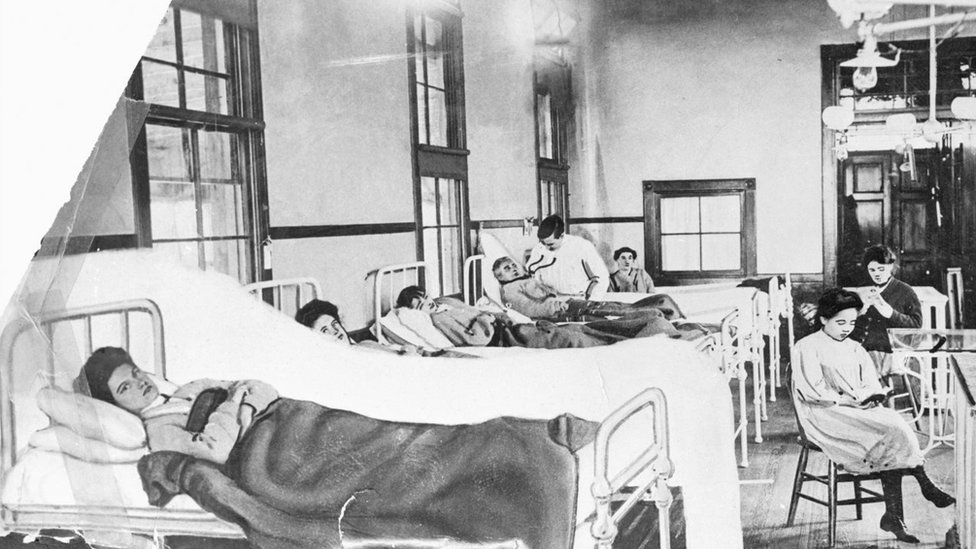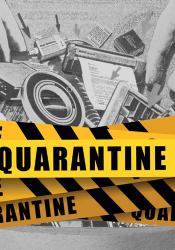Earliest Recognition of Disease Spread
One of the first recorded instances of the spread of infectious diseases was in 1346-47. A band of sailors was attacked by a group that was carrying the Black Plague, and when the sailors returned to their home in England, they brought the plague with them. The first instance of quarantining occurred around 1374. Incoming ships would be checked for sick people, and if they were determined to be carrying diseases, they would be forced to stay on the ship. This was initially seen as a bad thing because it would slow down the shipping, but it was overall useful in helping slow down the spread of disease. This was, however, before infectious diseases were really known about, so the prevailing theory at the time was that of "miasma," a poisonous gas in the atmosphere which caused these diseases. In the early 1800s, England saw an increase in quarantine regulation, much of which was a result of a cholera outbreak which they were trying to slow. A bit before this time, a group that we now call the "contagionists" believed that instead of the miasma theory, the disease was instead spread by coming into contact with other people who had the disease. Initially, this was seen as foolish, but similar to those who believed in a heliocentric solar system, they turned out to be correct later on. Eventually, around the mid-1800s, it was determined that they were correct (Averns).

Frontline Infectious Disease Control at Britain’s borders
This ties in very much with the text that we are currently reading. In the text, we know that Fred Vincy is very sick with the fever, and he is isolated in his room. Around George Eliot's time, not much was really known about infectious diseases such as Typhoid, so they basically only knew about hygiene and isolation. It is mentioned that Fred has some of his "dealings" after walking through dark, dirty alleyways, so it is very likely that he caught the disease after traversing these areas multiple times. In the text, it states that Fred Vincy is in a "sickroom," which would've been a place where those that were sick were confined. According to the CDC, with the rise of Coronavirus and its rapid spread, they actually suggest creating a modern-day sickroom within our own homes. They suggest alcohol-based hand cleaner, masks, thermometers, cold water, trash cans, tissues, and various other things used to make those that are sick comfortable. I believe that a sickroom back in Eliot's time would have likely had similar things, though less advanced. The purpose of the room would've been to keep the sick away from people while also providing the sick person a comfortable place to recover. I find it very interesting how history is repeating itself, and how many of the same precautions are being taken nowadays as were being taken almost 200 years ago.

Works Cited:

